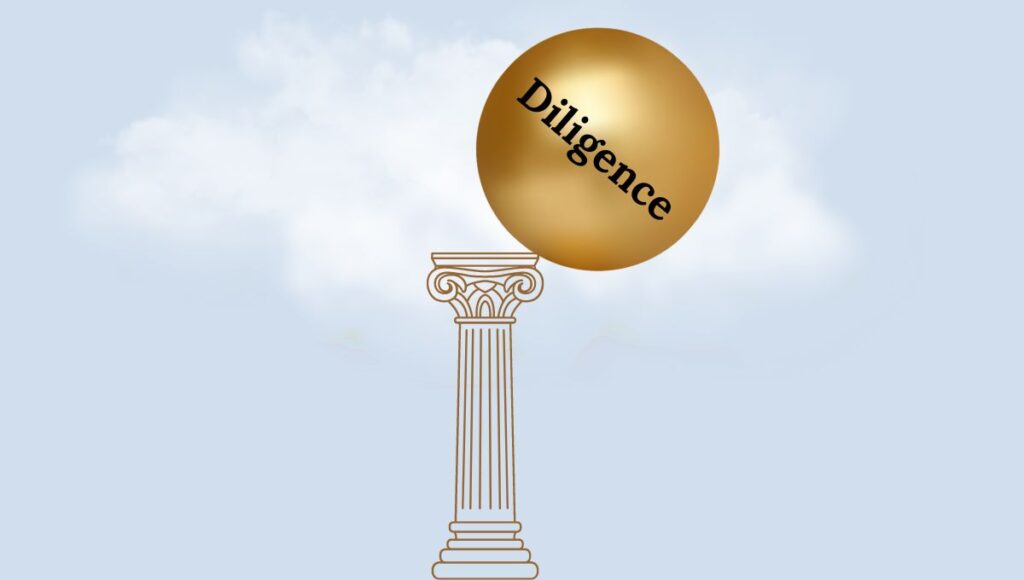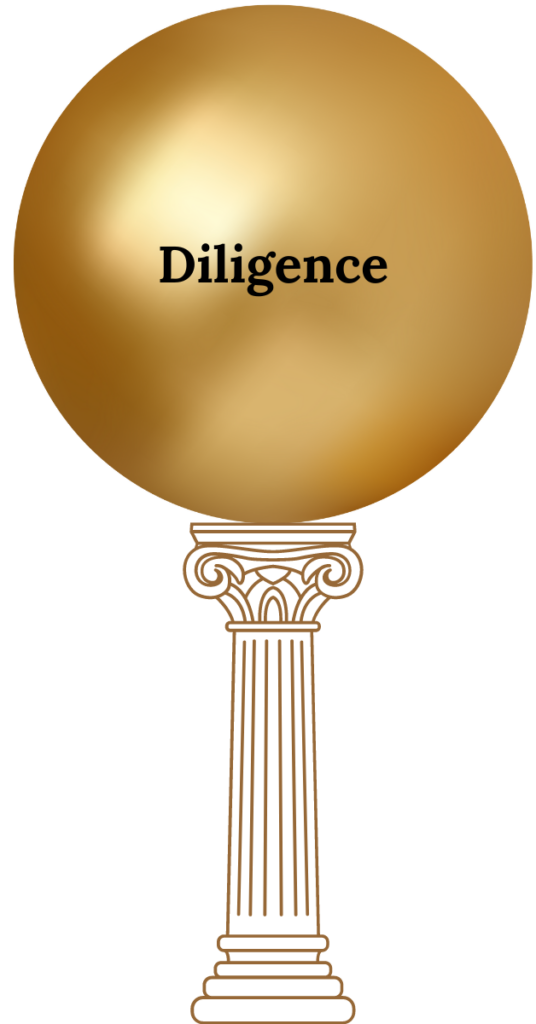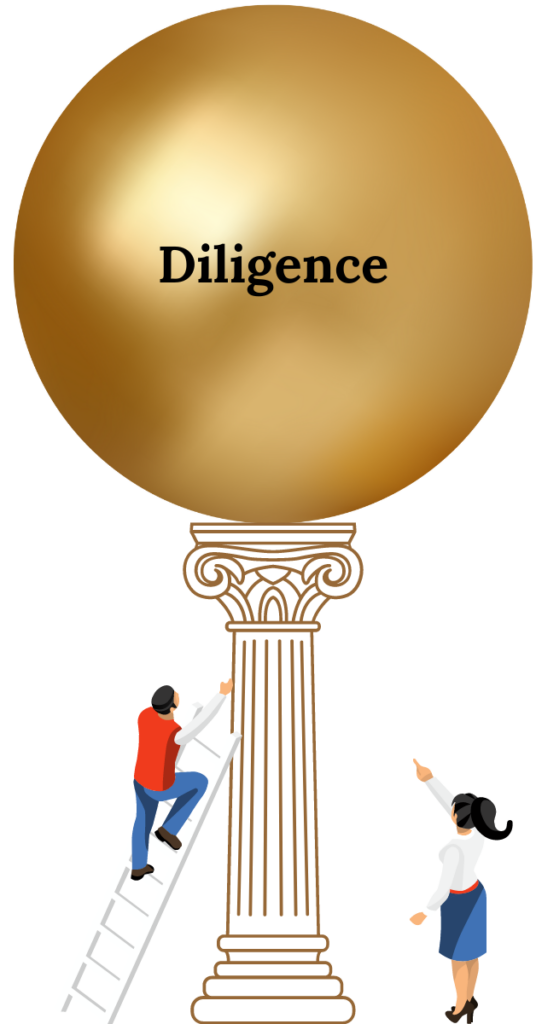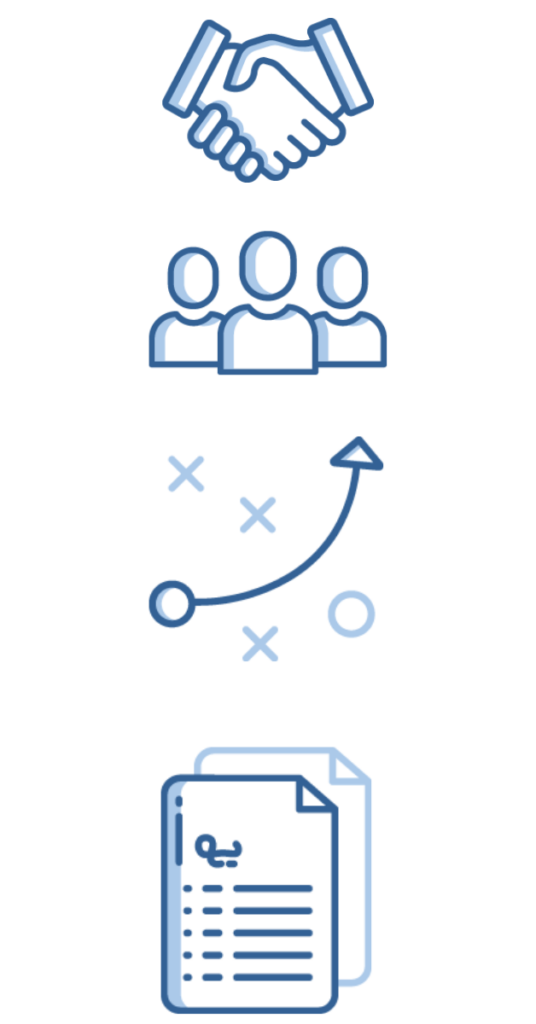Mar 23, 2024
It’s Important That You Knock Diligence Off The Pedestal
Principles

If you want a diligent organization knock diligence off the pedestal and restore it to its rightful place – in the hands of each and every person in the organization.
The Pedestal Problem
Years ago I worked for a start up that created a database of information derived from publicly available information, such as news stories. The subscribers, financial institutions, would submit names to run against the database. The output was a report of hits that were possibly relevant to the name. The customer would take the output report and conduct additional diligence such as checking if the hit was real or a false positive, current or relevant. The customer would look for additional sources to verify or supplement the information from the database.
This additional diligence was conducted by employees that customers often called “analysts.” These analysts were educated, thoughtful people, most at the start of their careers. They were not trained diligence professionals such as lawyers or investigators.
Over time, I saw a pattern with some of these analysts – they had trouble taking the next diligence step. They would get stuck and call us up with what I thought were basic diligence tasks and questions. After enough of these calls and a series of customer meetings, I realized the problem.
Some of these analysts had the idea that conducting diligence was something specialized and difficult. It required the input of diligence “experts” such as those employed by the start up. These analysts saw diligence work as outside of their skill set, even though their job was to conduct diligence. These people had put diligence on a pedestal, out of their own reach.

Why Is Diligence Put Up On A Pedestal?
I think diligence ends up on a pedestal because of this series of associations.
- When we hear the word “diligence” we automatically think it means “due diligence.”
- We define due diligence to mean diligence that is required by legal standards or associated with major financial transactions/decisions or risk related events.
- Then we connect all diligence with the levels of processes and procedures needed to meet a mandated “due diligence” standard.
- These processes and procedures may be complicated and include the need for expert consultation, specialized professional education, legal interpretation, inclusion of internal departments such as finance, legal and compliance and
- The due diligence process is one that is associated with sophisticated technology and system support.
In other words, all diligence becomes – due diligence – then due diligence- is defined to mean a specialized, defined, set of actions performed by special people and special technology.

The Problem This Will Cause
When diligence is on this pedestal, the message is that diligence is unreachable for the “regular” person. Diligence is then perceived by those people as:
- only to be performed by someone with skills obtained through specialized degrees or years of training
- so valuable it is only used in limited circumstances
- costly because you need resources such as experts and technology
- time consuming and difficult
- not everybody’s responsibility
This leads to more issues because people start to believe, “I can’t perform diligence” or ” I am not allowed to perform diligence” or the more cynical idea that ” it’s not my problem, because it is outside of my pay grade.”
Whatever thought or mix of thoughts prevail, the outcome is the same, diligence becomes the responsibility of only a small specialized group of people.
All this is dangerous because you can’t have a diligent organization if diligence only belongs to a few.

How To Fix The Diligence Pedestal Problem
If you want everyone in the organization to be diligent (and why wouldn’t you) diligence must come off the pedestal. How do you do this? The elements of the Diligence File Framework
Principles – leadership needs to make it clear in communication and messaging from the highest leadership levels down through the organization – diligence is everyone’s job responsibility.
Culture – the culture needs to recognize, respect and reward diligence and diligent behavior on all levels, not just at the leadership level.
Strategy – people need to be provided with the strategies and the processes and procedures that allow them to easily incorporate diligence into their responsibilities. The easier it is to perform diligence the more diligence will happen.
Resources – Again, making diligence easy is a way to make sure it happens and the proper resources can do that. What resources are needed will depend on the type and level of diligence. A diligence resource audit is not hard – just ask.

This Is What Happens When Diligence Is Off the Pedestal
When you take diligence off the pedestal by:
- communicating that diligence is everyone’s job,
- fostering a culture that teaches, recognizes and rewards diligence
- offering strategies and processes to integrate diligence into workloads
- providing the resources needed to perform great diligence
you can expect:
Responsibility – people understand that they have a responsibility for diligence that aligns with their duties. When you are responsible for the success of something you take more care, you are thoughtful, you are accountable.
Empowerment – when people feel responsible and are empowered, they take control of situations. When you are empowered you persevere, you make decisions, you build authority. You are proud of your work.
Creativity – people that are responsible and empowered are inspired. When you are inspired you get creative, you engage your mind in a way that encourages imagination and innovation. Your investment in the outcome is worth the effort of creativity.
Diligent Behavior – people that are responsible, empowered and creative are diligent. When you are diligent you pay attention to detail, you understand your role in the success of the organization. You put in an effort that is beyond the “merely necessary” you are PICKIE.
The Diligent Organization
The end result of all of this is a diligent organization. And yes, in a diligent organization there are circumstances that require the more traditionally defined “due diligence.” But a diligent organization doesn’t put any diligence on a pedestal. All diligence is considered part of someone’s every day responsibility.
A diligent organization integrates all these types of diligence into the organization in such a way that all people understand their roles and responsibilities for diligence.
For more resources, ideas and strategies subscribe to the weekly Diligence File email


Subscribe for Diligence Updates
Get the latest updates, resources, offers, and more.
"*" indicates required fields
The Diligence File respects your privacy. Privacy Policy